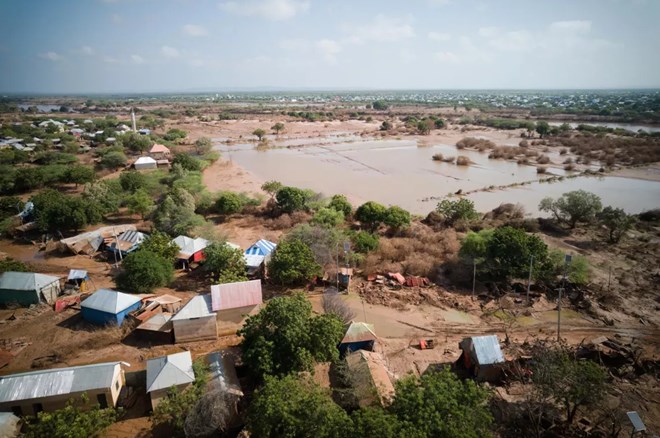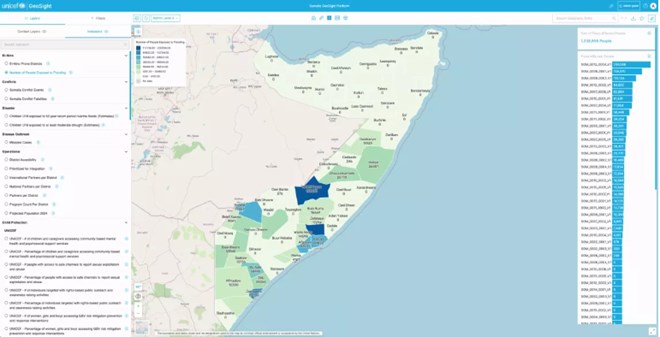
Hassan Istiila
Saturday June 1, 2024

@UNICEF Somalia
Mogadishu (HOL)—The United Nations Children's Fund (UNICEF) has developed a new web platform designed to transform the analysis and visualization of geospatial data and improve humanitarian preparedness and response in Somalia.
The new platform, GeoSight, is an open-source web geospatial data platform for easy data visualization and analysis, focusing on improving outcomes for children. It is specifically designed to simplify the creation of online maps for visualizing multiple indicators at a sub-national level to support evidence-based decision-making for better results for children.
Levi Eze, an Emergency Specialist at UNICEF Somalia, South Central Region, said, "With multiple partners and conflicting reports, GeoSight emerges as a source of truth, allowing us to filter information by location and risk, ensuring our responses are based on reliable data."
@UNICEF Somalia: October 2023 Caption: GeoSight Platform Visualization Data of Flooded Provinces in Somalia
From 2020 to 2023, drought pushed Somalia perilously close to famine, resulting in about 43,000 deaths in 2022, half of whom were children under five. As the drought subsided, it gave way to historic Deyr rains and flooding in late 2023. Nearly half of the country's districts were affected by flooding, impacting 2.5 million people and submerging over 1.5 million hectares of farmland.
In 2023, UNICEF's Rapid Response Teams, stationed closest to the impact zone, used boats to bring people to safety based on data obtained through GeoSight.
"GeoSight guided the deployment of life-saving rapid response teams and the humanitarian cargo relief and supply setups," Eze recounted. "It offered unprecedented clarity of risks and impacts on the ground. It's made our work more targeted and effective."
UNICEF's Global Innovation Climate Portfolio supported the groundbreaking GeoSight tool, which guides data-driven and timely emergency responses in places severely affected by climate change and natural disasters.
The succession of climatic crises in Somalia, compounded by
conflict, led to a record 2.9 million displaced people in 2023, underlining the
urgent need for innovative solutions like GeoSight to navigate and mitigate the
impacts of natural hazards, the UNICEF stated.
UNICEF Somalia has, directly and indirectly, supported the innovative solution in its ambition to reach 2 million people in 2024. After the successful pilot in Somalia, GeoSight is entering the acceleration phase, with plans to extend access to NGOs and government entities in Kenya, Cambodia, and Lebanon.